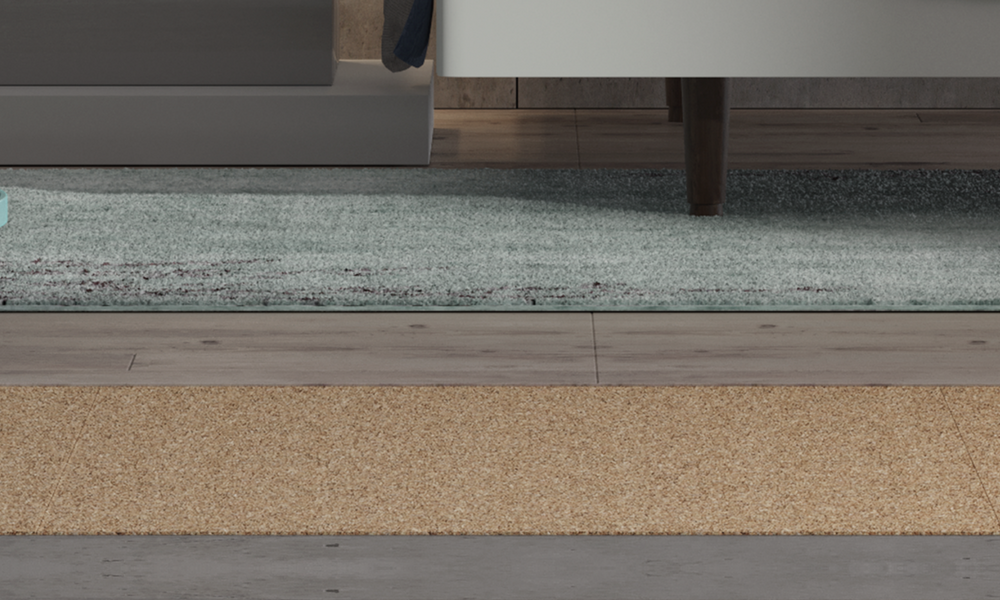Cork-based underlays: the balance between performance and comfort
Installing an underlay plays a critical role in improving the comfort and efficiency of buildings. Cork-based products are an excellent option for underlays.
Sustainable materials for all types of flooring
Cork is the common denominator used in all our underlays. When applied beneath a flooring system, a cork-based underlay provides greater comfort, protection and longevity to the final floor, ensuring greater energy efficiency and better acoustic and thermal insulation.
Applied between the subfloor and final floor, the underlay provides a decisive contribution to the overall performance of the flooring system, in terms of durability, thermal comfort, acoustic insulation, and energy efficiency.
Although selection of the specific type of underlay can vary in function of the floor chosen and the room’s type of use, application of an underlay is always recommended. Whether used for a wooden floor, ceramic floor, laminate flooring or resilient flooring (LVT), an underlay not only ensures correct application of the flooring it also significantly increases its working life. In addition to delivering higher performance, the underlay will assure greater user comfort.
Primary benefits of a cork-based underlay
-
Levelling of irregular areas
Use of underlay makes it possible to level the subfloor before application of the final floor, compensating for small deviations and imperfections. The underlay also protects the final floor from any "telegraphy" (dimple effect) that may arise.
-
Protection of the joining system
Use of underlay helps prevent damage to the joining system (click-to-fit system) when subjected to any loads (static or dynamic). The higher the parameter of the underlay’s compressive strength, the greater the protection to the joining system.
-
Protection against substrate moisture
The underlay protects the floor from moisture effects that may appear on the substrate. Amorim Cork Composites also offers options with integrated vapor barriers, which prevent the circulation of moisture through the subfloor.
-
Thermal comfort
One of the main characteristics offered by cork-based materials is thermal insulation capacity. Through application of these materials it is possible to retain and maintain a constant temperature inside a room.
-
Capacity to resist loads
Daily use exposes the flooring to various types of loads. The underlay allows the floor to support these loads without changing its properties. Given the intimate relationship between the elastic capacity and compressibility of cork-based materials, it is possible to ensure greater uniformity of the flooring over time.
-
Environmental Sustainability
100% natural, reusable and recyclable, cork is one of the most versatile materials in the world, from an environmental, social or economic perspective. In addition to cork, all materials used in the production of our underlays are based on the concept of the circular economy. Therefore when looking for a solution that guarantees high performance, and is also environmentally sustainable, cork-based materials constitute the right choice.
Soundproofing
The ability of an underlay to improve a building’s acoustic performance is one of its most valued aspects. Due to their sound-absorbing properties, cork-based materials help reduce day-to-day noise, including airborne and impact noises.

Soundproofing
The ability of an underlay to improve a building’s acoustic performance is one of its most valued aspects. Due to their sound-absorbing properties, cork-based materials help reduce day-to-day noise, including airborne and impact noises.
Amongst the various types of underlays available in the market, cork-based materials offer the best acoustic performance, drastically reducing noise levels perceived by users.